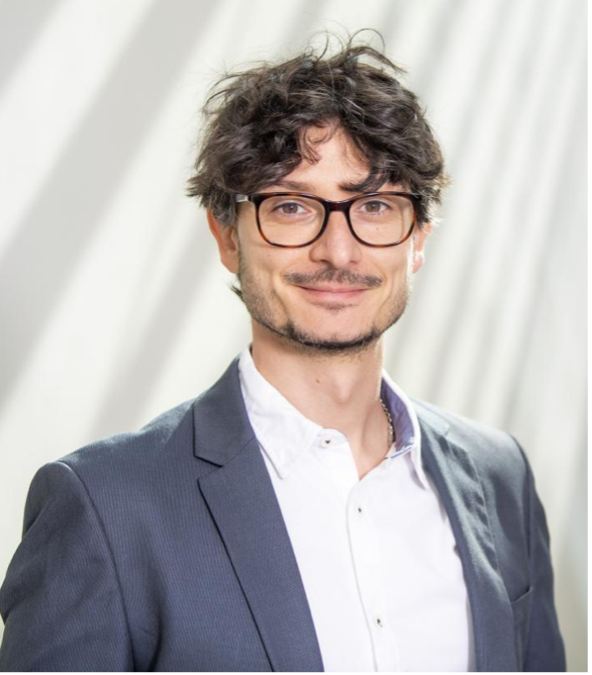ACSOS Expert Panel
“Uncertainty Interaction in Self-Adaptive and Self-organizing Systems”
Tokyo, October 1st, 2025 14:00-15:30
Summary
The world is undergoing a profound transformation in which systems controlled by software are increasingly used to support critical tasks across essential domains (e.g., healthcare, transportation, banking) characterized by high degrees of uncertainty introduced by the complex interactions with their human users, the use of machine learning components, nontrivial interdependencies between their physical elements and software, and rapidly changing environmental conditions. Hence, providing assurance about the safety and performance of such “software-intensive” systems under specified levels of uncertainty is crucial to their adoption. During the last decade, researchers have made an important effort in supporting the construction of software-intensive systems that operate under uncertainty by devising modeling notations, analysis, and assurance mechanisms that have increasingly started to capture and mitigate the effects of different types of uncertainty [1,2]. However, these solutions tend to tackle different types of uncertainty in isolation; yet, different uncertainty types are rarely independent and often interact, causing emergent effects that impact the achievement of system goals in subtle and often unpredictable ways [3,4]. This expert panel will explicitly address the pivotal role of the Uncertainty Interaction Problem (UIP) [3,4] and the need for an explicit management of uncertainty interactions in building safer and more resilient self-adaptive and self-organizing systems.
[1] Andres J. Ramirez, Adam C. Jensen, and Betty H. C. Cheng. 2012. A taxonomy of uncertainty for dynamically adaptive systems. In Proc. of SEAMS’12. IEEE Computer Society, 99–108.
[2] Sara Mahdavi-Hezavehi, Danny Weyns, Paris Avgeriou, Radu Calinescu, Raffaela Mirandola, Diego Perez-Palacin: Uncertainty in Self-adaptive Systems: A Research Community Perspective. ACM Trans. Auton. Adapt. Syst. 15(4): 10:1-10:36 (2021)
[3] Javier Cámara, Javier Troya, Antonio Vallecillo, Nelly Bencomo, Radu Calinescu, Betty H. C. Cheng, David Garlan, Bradley R. Schmerl: The uncertainty interaction problem in self-adaptive systems. Softw. Syst. Model. 21(4): 1277-1294 (2022)
[4] Javier Cámara, Radu Calinescu, Betty Cheng, David Garlan, Bradley Schmerl, Javier Troya, Antonio Vallecillo. Addressing the Uncertainty Interaction Problem in Software-intensive Systems: Challenges and Desiderata. 25th ACM/IEEE International Conference on Model Driven Engineering Languages and Systems (MoDELS 2022): 24-30 (2022)
Panelist Bios
 Alessandro V. Papadopoulos is Professor of Electrical and Computer Engineering (ECE) at Mälardalen University (MDU), in the area of complex real-time embedded systems.He has filled the role of Scientific Advisor for different companies, including ABB (2019-2024) and Zero Point Technologies (2024-today) His research focuses on the modeling and control of interconnected systems in the presence of uncertainty, as well as the application of control theory to the design and implementation of computing systems, particularly in the context of embedded and distributed systems.
Alessandro V. Papadopoulos is Professor of Electrical and Computer Engineering (ECE) at Mälardalen University (MDU), in the area of complex real-time embedded systems.He has filled the role of Scientific Advisor for different companies, including ABB (2019-2024) and Zero Point Technologies (2024-today) His research focuses on the modeling and control of interconnected systems in the presence of uncertainty, as well as the application of control theory to the design and implementation of computing systems, particularly in the context of embedded and distributed systems.
 Lola Burgueño is an Associate Professor at the University of Málaga, Spain.
Lola Burgueño is an Associate Professor at the University of Málaga, Spain.
Her research interests lie in the fields of software engineering and model-based software engineering. She has made contributions to the application of artificial intelligence techniques to improve software development processes and tools, uncertainty management during the software design phase, and model-based software testing, among others. She has been / is being PC (co-)chair of ECMFA’21, SLE’22, JISBD’25 and ICWE’26. She is the General Chair of MODELS’26. She has served as co-chair and organizer in conferences such as ICSE, ASE, MODELS, SLE, STAF, ICMT, ECMFA and ICSOC. She is regularly invited to give keynotes, invited talks or to participate in panels. She has received several best paper awards in top-ranked conferences, best reviewer awards, and a medal in the ACM Student Research Competition, among others. She is an associate editor at SoSYM, a steering committee member of MODELS, SLE and JISBD; and a member of the WG on Diversity & Inclusion of Informatics Europe.
 David Garlan is Professor of Computer Science and Associate Dean in the School of Computer Science at Carnegie Mellon University. His research interests include software architecture, self-adaptive and autonomous systems, formal methods, and cyber-physical systems. He is recognized as one of the founders of the field of software architecture, and in particular, formal representation and analysis of architectural designs. He has received a Stevens Award Citation for “fundamental contributions to the development and understanding of software architecture as a discipline in software engineering,” an Outstanding Research award from ACM SIGSOFT for “significant and lasting software engineering research contributions through the development and promotion of software architecture,” an Allen Newell Award for Research Excellence, an IEEE TCSE Distinguished Education Award, and a Nancy Mead Award for Excellence in Software Engineering Education. He is a Fellow of the IEEE and ACM.
David Garlan is Professor of Computer Science and Associate Dean in the School of Computer Science at Carnegie Mellon University. His research interests include software architecture, self-adaptive and autonomous systems, formal methods, and cyber-physical systems. He is recognized as one of the founders of the field of software architecture, and in particular, formal representation and analysis of architectural designs. He has received a Stevens Award Citation for “fundamental contributions to the development and understanding of software architecture as a discipline in software engineering,” an Outstanding Research award from ACM SIGSOFT for “significant and lasting software engineering research contributions through the development and promotion of software architecture,” an Allen Newell Award for Research Excellence, an IEEE TCSE Distinguished Education Award, and a Nancy Mead Award for Excellence in Software Engineering Education. He is a Fellow of the IEEE and ACM.
Wed 1 OctDisplayed time zone: Osaka, Sapporo, Tokyo change
14:00 - 15:30 | Uncertainty Interaction in Self-Adaptive and Self-organizing SystemsACSOS Expert Panel at Hitotsubashi Hall - Room 3+4 Chair(s): Javier Camara University of Málaga | ||
14:00 90mPanel | Uncertainty Interaction in Self-Adaptive and Self-organizing Systems ACSOS Expert Panel Alessandro Vittorio Papadopoulos Mälardalen University, Lola Burgueño University of Malaga, David Garlan Carnegie Mellon University | ||